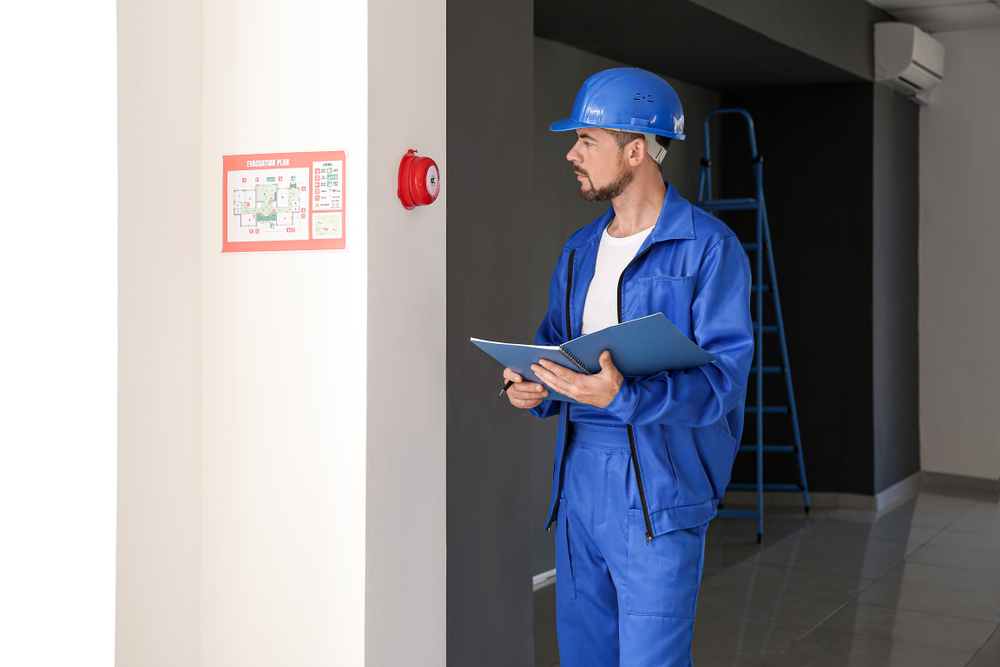Embarking on a new business venture or expanding into a commercial space is exhilarating—until you realise you need to check the fine print, inspect the premises, and decipher the labyrinth of rules and regulations that come along with it. Like most things in life, it’s not just about picking the spot with the nicest view or the trendiest neighbourhood. You need to be a savvy tenant, armed with knowledge, and ready to probe beyond the obvious. Here’s what you need to know when inspecting a commercial property.
Why Knowing the Rules and Regulations is Non-Negotiable
A lease is more than a handshake and a set of keys. It’s a legally binding document that sets out your rights and responsibilities as a tenant. Once you sign on the dotted line, you’re not just agreeing to pay rent; you’re also consenting to comply with every applicable law and regulation under the sun. Understanding the ins and outs of these regulations will equip you to assess whether the premises fit your needs—and whether they’ll let you sleep soundly at night.
So, before you start visualising your chic office layout or bustling storefront, take some time to do your due diligence. Here are some questions to keep in your toolkit.
1. Fire Safety Equipment: Will the Place Stand the Heat?
Let’s start with a hot topic—literally. Fire safety is non-negotiable, and every property must comply with certain standards. Ask for a list of the fire equipment on-site and check whether it’s up to snuff with the current legislation. If the landlord is evasive or the fire compliance certificates are out-of-date, consider it a red flag.
Inquire about routine inspections and servicing of the fire systems, and check whether any additional work is required to bring the property up to code. Remember, ensuring compliance might ultimately be your responsibility once you sign that lease, so it’s best to negotiate any necessary upgrades with the landlord from the get-go.
2. Noise Restrictions: Will You Have to Keep it Down?
Picture this: you’ve just opened the trendiest café in town, only to find out that the volume of background jazz or the hum of your coffee machine breaches local noise regulations. Or worse, your bustling clientele becomes an issue with neighbouring businesses. Noise regulations vary, and some properties have specific restrictions based on the local council or even strata by-laws.
If your business involves noise (be it music, machinery, or enthusiastic customers), it’s wise to inquire about any restrictions before you sign the lease. Understanding the noise landscape will help you determine whether the location is truly as perfect as it appears.
3. Hazardous Materials: Is There Something Toxic Lurking?
If the premises is as old as it is charming, there’s a chance it could come with some hidden dangers—think asbestos or other hazardous materials. Older buildings can have a darker history lurking beneath the surface, and it’s essential to know if you’re stepping into a potentially hazardous environment.
Ask the landlord or agent about any history of hazardous materials and whether further action is required to ensure safety. If asbestos removal or other cleanup is necessary, factor these costs into your negotiations. A word to the wise: don’t attempt a DIY cleanup. Some materials require professional removal, both for safety and legal reasons.
4. Accessibility: Will Everyone Feel Welcome?
Not all commercial properties are created equal when it comes to accessibility. A charming old staircase may look quaint, but it could be a dealbreaker if it limits access for clients with mobility issues or makes daily logistics difficult for your team. Ask yourself: is there an elevator? Are there ramps? Is the space welcoming for everyone, from staff to clients?
Accessibility isn’t just about compliance; it’s about creating a space where everyone feels valued and included. If you’re in a business that involves heavy deliveries or equipment, consider the practicality of the layout. After all, you don’t want to realise mid-move that the multi-level property you fell in love with is more of a logistical nightmare than a dream location.
5. Ventilation: Fresh Air, Anyone?
Ventilation is especially critical for businesses in food and beverage, healthcare, or any industry where air quality plays a role. Inadequate ventilation could lead to compliance issues and, perhaps worse, disgruntled staff or customers. So, it’s not just about “does it look good?”—it’s about “will people want to breathe here?”
Check whether the ventilation systems meet industry standards and, if possible, ask to test any equipment. Poor ventilation can lead to issues that cost time and money down the line. Better to know now than to discover it when your chef starts overheating along with the oven.
Consequences of Non-Compliance: A Potential Nightmare
Ignoring regulations might seem tempting in the early stages, but let’s be clear—non-compliance can lead to hefty fines, penalties, or even forced closure. Failing to conduct due diligence means you’re not only risking your investment but potentially violating the lease terms and state laws.
By understanding the regulations and asking the right questions upfront, you can avoid nasty surprises. Picture it as a preventive measure—like eating your veggies to avoid a doctor’s visit.
Key Takeaways: The Secret to a Smart Lease
So, before you start envisioning your business empire, make sure you conduct a rigorous due diligence process tailored to your enterprise. Whether it’s fire safety, noise restrictions, accessibility, or ventilation, every commercial premises has its quirks. A bit of time spent investigating now could save you headaches (and costs) later.
Remember, these are just a few tips to get you started. The regulations will vary by state and industry, so tailor your due diligence checklist accordingly. At the end of the day, you want a space that works with you, not against you—because a lease is more than just a contract; it’s the foundation of your new business journey.
For further guidance on lease negotiations or navigating compliance issues, reach out to a qualified professional. Because sometimes, peace of mind is worth every penny.




















